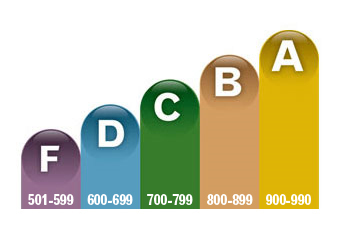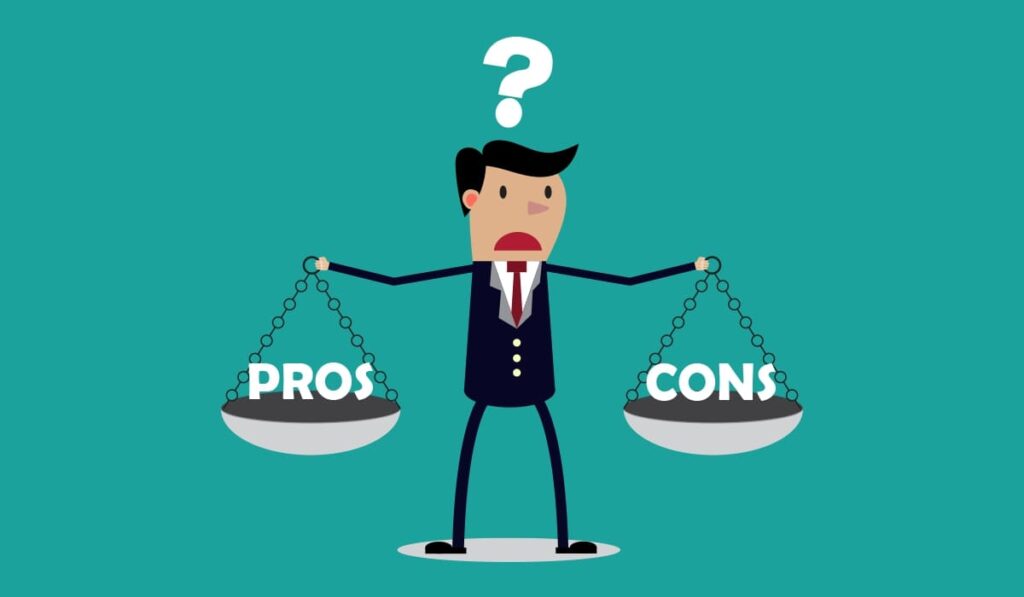Don't waste your time. Get a loan online.
Motive Loans strives to help you get Personal Loans With Best Rates, make better financial decisions. While we adhere to strict editorial integrity, this post may contain references to products from our partners.

What is a personal Loans?
Personal loans are short-term loans that consumers can receive from banks, credit unions or private lenders like online marketplace lenders and peer-to-peer lenders.
You can use the loan funds for almost any purpose. For example, to pay off debts, finance a home renovation, or for paying for family members’ needs like a wedding or adoption. Personal loans are repaid monthly, much like a home mortgage or car loan. Loan terms can range from 24 to 60 months, or even longer. Personal loans are typically unsecured, meaning they are not backed by collateral such as a car, house or other assets. If you need cash fast, these loans are a good choice because the approval and funding process is often faster than that of a home equity line of credit, which lets you borrow funds as you need them rather than in a lump sum.
What are the current personal loan interest rate?
Personal loan interest rates currently range from about 3 percent to 36 percent, depending on your credit score. The average personal loan interest rate was 10.49 percent as of July 7, 2021.
Don't waste your time. Get a loan online.
The better your credit score, the more likely you are to qualify for a personal loan with the lowest interest rate available. Compare personal loan offers before you apply for a personal loan.
Average personal loan interest rates based on credit rating
Personal loan interest rates average between 10.3 percent and 12.5 percent for “excellent credit scores” of 720 to 800, 13.5 percent- 15.5 percent if “good” credit scores 690 to 719 and 17.8 percent-19.9 percent for “average credit scores” of 630-689, 28.5 percent to 32.0% for “poor credit scores” of 300 to 629, and 28.5 percent-32.0 percent if “poor credit scores” of 300 to 629.
| CREDIT BAND | CREDIT SCORE RANGE | AVERAGE PERSONAL LOAN INTEREST RATE | |
|---|---|---|---|
| Excellent Credit | 720–850 | 10.3%–12.5% | |
| Good Credit | 690–719 | 13.5%–15.5% | |
| Average Credit | 630–689 | 17.8%–19.9% |  |
| Bad Credit | 300–629 | 28.5%–32.0% |
Loans for excellent credit
Excellent-credit loans are loans that are geared toward borrowers with excellent credit, typically with credit scores between 720 and 850. A high credit score can bring many benefits. The average APR for these loans is as low as 10.3 per cent, though some lenders will go lower. If your credit score falls into this range, look for excellent-credit lenders with low advertised rates and few fees.
Loans for good credit
Good-credit loans offer competitive interest rates and generally low fees. If you have credit scores between 690-719, you are considered to be in good credit. You may be eligible for an average APR of 13.5 percent. However, if you have good credit and are interested in a personal loan, shop around; you may be able to qualify for an even lower interest rate.
Fair credit loans
It can be difficult to find a personal loans with reasonable fees and rates if you have a low credit score. Your credit score is considered average if your credit score falls between 689 and 630. This is a low credit score that can still be used to get a personal loan. The average APR for this loan could be as low as 17.8 percent. This list of the best personal loans for fair credit features lenders that cater to people with scores in the mid-600s.
Bad credit loans
You can get approved for a loan even with bad credit, although you won’t qualify for the best APRs. The best interest rate for you if your credit score is between 300-629 could be 28.5 percent. A bad credit loan is better than a payday loan. Compare rates from several lenders to find out what they offer.
What does the coronavirus have to do with personal loans?
Millions of Americans are now without an income source and may need personal loans to pay for their emergency expenses. Some banks have increased eligibility requirements in response to the unprecedented market conditions. However, they have offered new loan options and lower interest rates.
For existing borrowers, some lenders have extended their loan relief programs into 2021, waiving fees or letting customers temporarily defer payments. Greg McBride is Motiveloan’s chief financial analysts. Long-term unemployment may mean that some borrowers will continue to rely upon these programs. McBride encourages borrowers who have difficulty paying their personal loans to get in touch with their lenders, rather than ignore the problem.
Who gets a stimulus-check?
The American Rescue Plan Act introduced a third stimulus in March 2021 when the IRS began sending eligible Americans payments up to $1,400.
Eligible families will receive half their child tax credit in monthly payments between July and December. The remaining half of the child tax credit will be paid in 2022. Those who do not want to receive monthly payments next year can opt for a lump sum. The total amount families could receive is $3,600 for children 5 years and younger, $3,000 for children 6-17, $500 for teenagers, and $500 for full-time college students 19-24.
There could be a fourth stimulus check coming, too, with 21 Senate Democrats urging President Joe Biden in a March 30 letter to support recurring stimulus payments for Americans.
What are coronavirus hardship loan?
Coronavirus hardship loans are short-term personal loans designed by lenders specifically to help people affected by the coronavirus pandemic. These loans typically cost less than $5,000 and can be repaid in three years or less. Credit unions love Coronavirus hardship loans. If you are in need of short-term relief, inquire about your local credit union’s offerings.
Personal loans: pros and cons

Pros
- One lump sum Fixed interest rates are usually used to keep monthly payments on track.
- Get money quickly It can sometimes take as little as one day depending on which lender you choose.
- Many are Unsecured loans This means that your car or home is not used to lend money.
- The interest rates are lower Payday loans can charge up to 400 percent more than payday loans.
- Personal loans are not like high-risk payday loans. They allow you to borrow money that isn’t risky.– A reasonable time frame to repay the loan.
Cons
- The APRs are usually higher Secured loans are more affordable than some.
- If you are a Low credit score, you might not qualify.
- Some lenders Charge fees Fees such as origination, late, and prepayment fees. A lender who charges higher fees is more likely to charge you if your credit score is lower.
- Some lenders don’t allow co-signers This means that you will need to have a good credit history and credit score in order to qualify.
- You are adding Another bill Your monthly payments can stretch or break your budget.
How to find the right personal loan lender
Before applying for a personal loan, it is always a good idea to compare quotes from several lenders. These are the factors to consider when comparing lenders.
- Approval requirements. Every lender has its own threshold for approving potential borrowers, considering things like your income, credit score and debt-to-income ratio. Look for lenders who will accept applicants with below-average credit scores. Some will consider things such as your job history or area of study.
- Interest rates. Compare your actual quotes. When comparing interest rates, also make sure to incorporate any fees or penalties; origination fees or application fees can significantly add to the overall cost of your loan.
- Loan amounts. You’ll be looking at different lenders if you need a loan to repair a car or pay off medical bills that are tens of thousands.
- Repayment terms. A good personal lender will usually offer multiple repayment terms so that you can choose which one makes sense for you. To reduce your monthly payments, you might want to choose a lender that offers long repayment terms if you are borrowing large amounts of money. A shorter repayment term for a smaller loan will reduce the total amount of interest that you pay.
- Look out for lenders that offer unique perks or restrictions.: You should ensure that the lender you are considering allows you to use your loan for what you intend. Some, like Payoff, restrict their personal loans to specific uses, like debt consolidation.
- Customer service. You should also investigate the company’s customer support options, especially if you prefer to deal with a person than online. If you need more information, you can always look up reviews about the company or check out its Better Business Bureau profile.
Types of personal loan and their uses
Personal loans are available for almost any purpose, with the exception of those from niche lenders like Payoff. These are the most popular types of personal loans:
- Consolidating debt: For example, if you have multiple credit card lines, you can pay them off using a personal loan. You also get the option to repay the loan over time with a lower interest rate.
- Emergencies: A personal loan may be able to help with unexpected expenses such as a car repair or hospital bill.
- Personal loans for home renovations: This personal loan can be used to finance large-scale home renovations and increase your equity.
A few frequently asked questions about personal loan
What is APR?
APR is an acronym for annual percentage rate. APR is the additional amount that borrowers pay in addition to their principal or loan amount. The APR is not the same as your interest rate. It equals your interest plus any loan fees.
What is the difference between an unsecured loan and a secured loan?
Secured loans are backed by a piece of the borrower’s property as collateral, typically a vehicle or house. Secured loans have lower interest rates because the borrower could lose their personal property if default.
Unsecured loans do not have collateral. Instead, they are backed by the borrower’s creditworthiness. Unsecured loans are more risky for the lender, so interest rates are usually higher. Lenders require that borrowers who are applying for unsecured loans have a higher credit score than the average.
Learn more about the key differences between secured and unsecured loans.
What is a repayment term?
The repayment term is the time that borrowers must repay their loans. Depending on the lender, a personal loan’s repayment term can be between one and ten years.
What does my credit score have to do with my offer?
Personal loans often have higher APRs because they are unsecured. Unsecured loans are more likely to be based on a borrower’s credit score.
A borrower will pay more interest if their credit score is lower than it was. APRs that are lower than average can result in double-digit APRs. Loan rates differ by lender, but opting for a secured loan can often help lower the loan’s APR, even for someone with bad credit. Secured loans may offer an APR that is up to 6 percent lower than unsecured loans in some instances.
Can a personal loan affect my credit score?
A personal loan can temporarily hurt your credit score since lenders will do a hard credit check when you apply. However, you should be able to recover and even improve your credit score if you make on-time payments for the duration of your loan. You should expect a greater drop in your credit score if you make late payments or miss payments frequently.
What is the difference between fixed interest and variable?
You may be offered a fixed rate, which will remain the same throughout the loan’s life, or a variable rate that can fluctuate depending on market changes.
Variable-rate loans often have a low interest rate at first, but it can increase over time. The loan agreement will outline how often the lender can raise the interest rate and the cap on the maximum rate. Fixed-rate loans will have the same interest rates and payments.
Decide whether you prefer stability with a fixed rate, or saving interest with a variable.
Is it worth getting a personal loan?
If you require a large amount of money upfront and stability in your monthly payments, a personal loan may be an option. Personal loans have a lower APR than credit cards and lines of credit. Most personal loans also maintain the same fixed rate for the entire loan term.
Before you commit to a personal loan, make sure to weigh the APR offered. This will ensure that your monthly loan payments are within your budget. There are loans that have a 10-year repayment period. Some companies will charge fees if you pay off your loan early. You should only borrow as much money as you require for your project. Additional borrowing will result in higher monthly payments and higher interest rates.
If you’re unsure if you can afford a loan, try using a personal loan calculator to see how much you’ll pay in interest on top of the cost of your loan.
What is the best interest rate for a personal loan?
Your credit score will determine the interest rate for a personal loan. You should seek a rate that is lower than the average APR. This means rates of 10.3 percent to 11.5% for exceptional credit, 13.5% to 15.5% for good credit, 17.8% to 19.9 percent average credit, 28.5 percent – 32 percent bad credit, and 28.5 percent – 12.5 percent for poor credit.
Rates are determined by many factors including credit score, credit history, and annual income. Prequalification is a process that lets you see if you are eligible for a loan. You can compare rates with several companies to determine which company will give you the best APR.
What are the requirements to get a personal loan?
Although every lender has different requirements, personal loans may be granted depending on your credit score, income, and payment history. Although all these factors are important for your financial health, lenders tend to focus more on your credit score. Your credit score will impact your chances of getting approved for a loan. If you do get approved, your interest rates will be higher. Personal loans are not the best fit for everyone. It is important to evaluate your financial and credit history.
When you’re applying for a personal loan, the lender may also require you to show documentation, such as proof of your identity, employer, income and address.
Which is better: Low-interest credit cards or personal loans?
When it comes to debt consolidation, both personal loans and credit cards could be useful in paying off high-interest debt. A personal loan allows you to borrow money from the bank, and then repay it in monthly installments. With a credit card, you’ll be able to complete a balance transfer, a method in which you transfer your existing debt to a new credit card.
Both have their advantages and disadvantages. A personal loan gives you the assurance of knowing your total loan costs. You also pay a fixed monthly amount. This makes it easier to budget and track expenses. However, personal loans can have higher APRs and up-front costs in certain cases.
With a balance-transfer credit card, many card issuers will offer a 0 percent APR introductory period, which gives you the opportunity to pay down debt without accruing interest for a certain number of months. If you have any outstanding debt after the introductory period ends, your APR may be higher than a personal loan. This could put you at greater risk of accruing more debt.
Compare the fees and rates of each option before you choose a method. Also, consider how flexible you want to consolidate debt.
What is the maximum amount you can borrow for a personal loan?
Personal loans can only be borrowed up to a certain amount depending on your credit score and the lender. There are many lenders that offer loans from $5,000 to $50,000. However, some offer loans as low $500 as $500 and as high as $100,000.
Can I repay my loan early?
You may be able to pay off your personal loan early in certain situations. For example, if you receive a salary increase or a cash gift, you can put those funds towards your personal loan. This will help you save interest and reduce your monthly expenses. Many lenders will even let you pay your loan off early without charging a prepayment penalty.
If you’d like to make extra payments on your loan, let your lender know that you’d like the extra payment to go toward the principal — otherwise, the lender may apply the funds toward your next payment.
Keep in mind that paying your loan off early may not be worth it if you have other higher-interest debt on your plate, like credit card debt, or if you don’t have emergency savings built up. It may be a better idea to invest extra funds in these cases.
What happens if my loan is not paid back?
If financial hardship means that you can’t pay back your loan, your loan will eventually fall into default. Some lenders will default as soon as you miss one payment. Others may take a few months to default.
With a defaulted loan, you’ll likely rack up late fees and see a dip in your credit score. Your loan could be sent to collections if you fail to make enough payments. You can minimize the negative impact of defaulted loans by contacting your lender immediately you realize you won’t have enough money to pay. Your lender might be willing to adjust your payment schedule.



